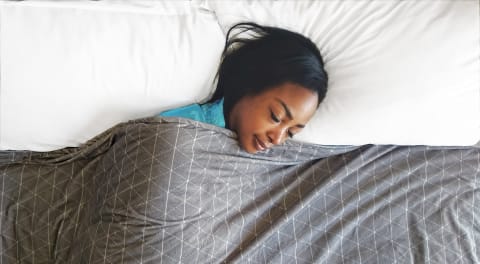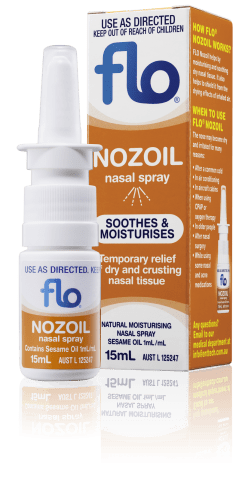Mouthpiece to prevent Snoring
Mouthpiece to Prevent Snoring: A Comfortable, Practical Solution with Ripsnore
Snoring affects millions of Australians every night – and if you’re living with a snorer (or are one yourself), you already know how disruptive it can be. While snoring may seem like just a noisy nuisance, it can be a sign of a more complex breathing issue, such as obstructive sleep apnea. Thankfully, there are effective tools to help – and one of the simplest, most accessible options is a snoring mouthpiece.
At Sove CPAP Clinic, we’re committed to helping patients find tailored solutions that match their unique sleep needs. In this article, we’ll explore how anti-snoring mouthpieces – particularly the Ripsnore – work, who they can help, and how they might fit into a broader sleep therapy plan. Whether you’re looking to reduce snoring or enhance your CPAP therapy, our team is here to support your journey.
A Mouthpiece May Help Prevent Snoring
Anti-snoring mouthpieces, also known as mandibular advancement devices (MADs), work by gently repositioning your lower jaw forward while you sleep. This adjustment keeps your airway open and reduces the vibration in the soft tissues at the back of your throat – which is what causes snoring.
Many people are surprised at how effective these simple devices can be, especially for snoring related to mouth breathing or minor airway blockages. If your snoring isn’t caused by central sleep apnea or another complex disorder, a mouthpiece might be a great place to start.
People who benefit most from snoring mouthpieces tend to:
- Snore primarily when sleeping on their back
- Experience mild sleep apnea
- Breathe through their mouth while sleeping
- Prefer a portable, non-electronic solution
However, not every snorer will be a good fit for a mouthpiece. For example, people with certain dental or jaw issues, severe sleep apnea, or sensitive gums may find them uncomfortable or less effective. That’s why it’s always best to consult with a sleep health specialist first – and at Sove CPAP Clinic, we can help assess whether a mouthpiece is right for you.
Keep in mind that consistency matters. Like any sleep aid, mouthpieces work best when used nightly and as directed. Our team can help you track your progress and determine if it’s making a difference.
Ripsnore Is an Easy-to-Use Solution Available Through Sove CPAP Clinic
The Ripsnore is a high-quality, Australian-designed snoring mouthpiece available exclusively through approved providers like Sove CPAP Clinic. It’s made from medical-grade, BPA-free materials and uses a “boil and bite” custom fit process, allowing the device to mould comfortably to your teeth.
What makes the Ripsnore stand out is its simplicity and comfort. Unlike more complex dental appliances, Ripsnore is user-friendly and doesn’t require a dentist visit to fit. Once customised, it works by holding the lower jaw slightly forward during sleep, helping to keep the airway open and reduce snoring sounds.
Key benefits include:
- Soft yet supportive design
- Custom fit at home
- Portable and travel-friendly
- Reusable and easy to clean
For many people, Ripsnore is an affordable and accessible first step in addressing nightly snoring. It’s particularly helpful for those who aren’t ready for CPAP or are looking for a simple solution for occasional use, such as during travel or nights without their machine.
A Mouthpiece Can Complement Nasal CPAP Therapy
If you already use a nasal CPAP mask but still notice snoring or air leaks, a mouthpiece like Ripsnore might offer additional support. Some people breathe through their mouth during sleep, even when using a nasal mask – leading to reduced therapy effectiveness and persistent snoring.
By helping keep the jaw in place and encouraging nasal breathing, a mouthpiece can:
- Minimise mouth leaks
- Improve CPAP pressure efficiency
- Reduce snoring sounds not fully controlled by CPAP
This combination approach can be especially helpful for people who find full-face CPAP masks bulky or uncomfortable but still need to manage mouth breathing. Adding a mouthpiece can allow you to continue using your preferred nasal mask while improving therapy outcomes.
It’s important to note that a mouthpiece isn’t a substitute for CPAP therapy in patients with moderate to severe sleep apnoea. However, for users with mild apnoea or simple snoring, it may provide significant benefits – either on its own or as part of a combined therapy plan.
Sove CPAP Clinic Offers Ongoing Support for CPAP Therapy and Other Solutions
Finding the right snoring solution is rarely a one-size-fits-all process. That’s why Sove CPAP Clinic offers a comprehensive range of services to support every step of your sleep therapy journey – whether you’re just starting out or looking to optimise your current setup.
We provide:
- In-clinic and telehealth consultations
- Mask fittings and machine setup
- Troubleshooting for snoring, dry mouth, mask leaks, and other issues
- Mouthpiece fittings and advice, including Ripsnore
If you’re unsure whether your snoring is simply a sleep nuisance or something more serious, our clinicians can help guide you through the next steps. In many cases, a simple at-home sleep study is all that’s needed to get a clearer picture.
If your partner has mentioned loud snoring, choking sounds, or restless sleep, it’s worth discussing your symptoms with a sleep professional. Mouthpieces like Ripsnore are a valuable tool—but they work best as part of a well-supported plan.
ALWAYS FOLLOW THE DIRECTIONS FOR USE. CPAP is used for Obstructive Sleep Apnoea treatment. When considering whether a sleep study or CPAP is right for you, speak to your doctor. Medicare criteria and T&Cs apply.
Frequently Asked Questions
What makes Ripsnore different from other snoring solutions sold online?
Ripsnore is a medically recognised mouthpiece made from high-quality, BPA-free materials. Unlike many online mouthguards, it’s designed specifically for snoring and can be customised at home using a boil-and-bite fitting method. This results in a more secure and comfortable fit compared to generic options.
Our clinicians can guide you through fitting, troubleshooting, and evaluating its effectiveness. You don’t get that level of support from mass-market online stores.
Do I need a sleep study before I try a snoring mouthpiece?
Not always – but it’s often recommended. If snoring is your only symptom and you’ve ruled out other concerns, a mouthpiece may be a reasonable first step. However, if you also experience daytime fatigue, morning headaches, or waking gasping for air, you may be dealing with sleep apnea.
In these cases, an at-home or in-lab sleep study can help determine whether a CPAP machine or other intervention is needed. Using a mouthpiece without knowing your underlying condition could lead to delays in receiving proper treatment.
At Sove CPAP Clinic, we offer sleep studies and can help assess whether a mouthpiece is appropriate based on your symptoms.
Who should avoid using a snoring mouthpiece?
While snoring mouthpieces like Ripsnore are safe for many people, there are some cases where they might not be suitable:
- People with loose teeth, gum disease, or dental implants
- Individuals with severe jaw misalignment or TMJ issues
- Those with diagnosed moderate-to-severe sleep apnea
- Children or anyone under 18
If you’re unsure whether a mouthpiece is right for you, speak to one of our sleep clinicians. We’ll evaluate your dental health, sleep patterns, and other risk factors to ensure that your therapy is both safe and effective.
How long does it take for snoring mouthpieces to work?
Many users notice a reduction in snoring within the first few nights of use. However, it can take a week or two to get fully accustomed to wearing the device and to fine-tune the fit.
Consistency is key. Like any sleep solution, mouthpieces work best when used every night. If discomfort persists beyond a week, or if snoring continues unchanged, our team can help reassess your fit or suggest alternative strategies.
We often recommend using a sleep tracker or sleep diary to monitor progress during the first 2–3 weeks. This can provide helpful insights into your snoring patterns and overall sleep quality.
Is the Ripsnore mouthpiece suitable for Sleep Apnea or just snoring?
Ripsnore is primarily designed for people who snore without having moderate-to-severe obstructive sleep apnea. That said, it may offer benefits for individuals with mild apnoea or those who are unable to tolerate CPAP therapy.
In some cases, Ripsnore can be used in combination with nasal CPAP to improve comfort and therapy adherence. However, it’s not a replacement for CPAP in those with a confirmed apnea diagnosis.
A proper sleep study can help determine the severity of your condition and whether a mouthpiece is suitable as a primary or complementary therapy.
How do I know if I need a full face CPAP mask or a nasal mask with my mouthpiece?
This depends largely on how you breathe during sleep. If you tend to breathe through your mouth, a full face mask may be necessary. However, a snoring mouthpiece like Ripsnore can sometimes encourage nasal breathing, allowing you to use a smaller, more comfortable nasal mask.
Sove CPAP Clinic offers in-clinic fittings and mask trials so you can test different options. We’ll also evaluate whether a mouthpiece improves your nasal breathing enough to switch from a full face mask to a nasal one – which many users find more comfortable long-term.








